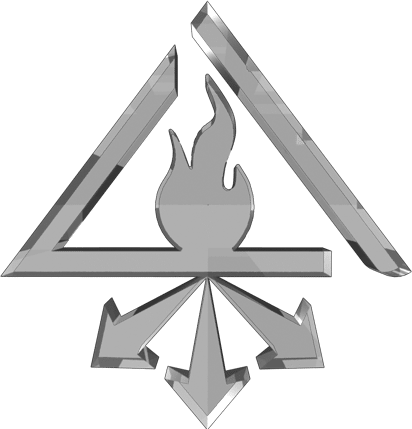Adept Armor NovaSteel Review: Taking Armor from Medieval to Modern
March 14th, 2022
7 minute read
The see-saw battle of armor versus armament has been going on since the first wood and leather shield deflected a bone- or stone-tipped spear. This is epitomized by plate armor versus steel swords from the Middle Ages. Steel continued carrying martial conations centuries after feudal knights faded away to the sound of gunfire erupting on the battlefield. A modern dagger still creates primeval feelings when handled.
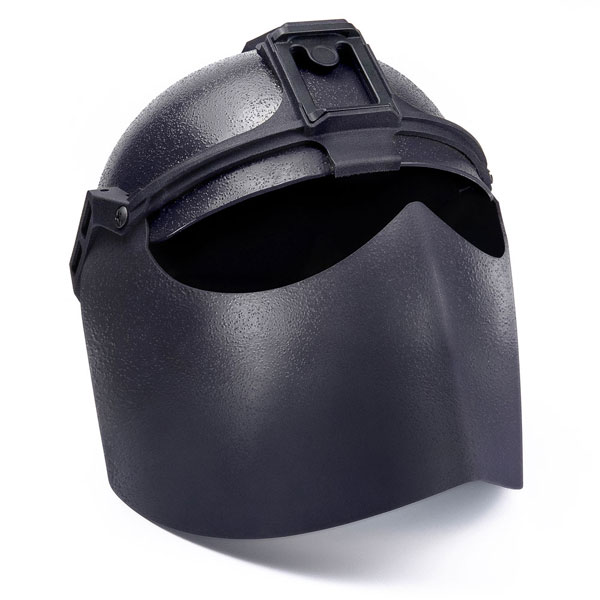
Research sources indicate that helmets are among the oldest forms of personal protective equipment. Sumerian soldiers in 2,300 BC are known to have worn helmets into battle. Helmet materials and construction became more advanced as weapons became more powerful, initially constructed from leather and brass then bronze, iron and steel.
Toward the Future
World War I, with its increased use of artillery, renewed the need for steel helmets for protection for the head from shrapnel and fragments. Since then, helmets continued to be important on battlefields around the world. One of the most recognizable steel helmets is the U.S. WWII era’s M1 “steel pot”. It stayed in service until 1983, being replaced by a Kevlar-based design.
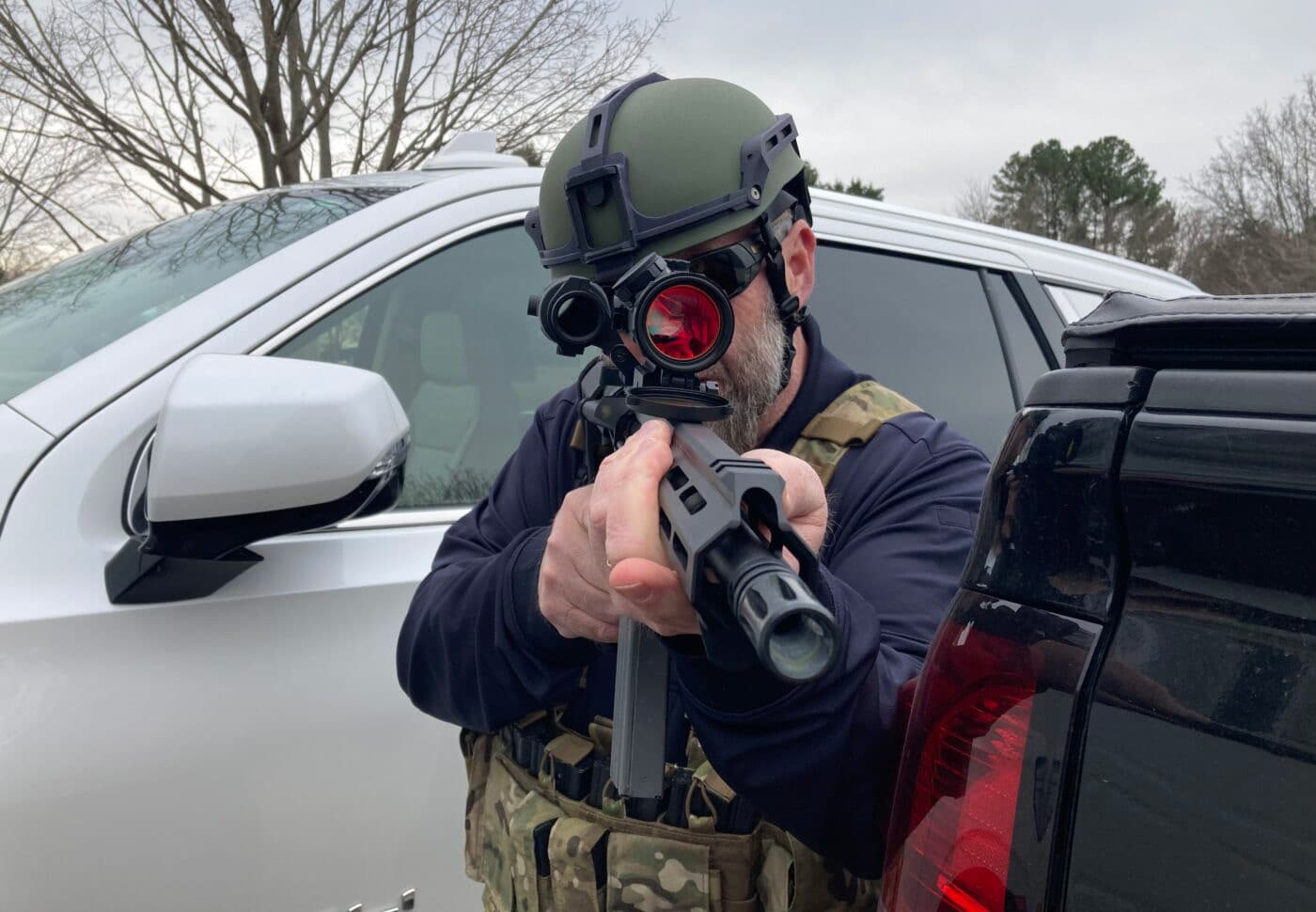
The Hadfield Steel used in the M1 dates back to 1882, with Sir Robert Hadfield obtaining a patent for his high manganese steel alloy mixture in 1883. Hadfield Steel offered toughness combined with easy to work/shape properties. When making millions of helmets — over 22 million M1 helmets were made between 1941-45 — manufacturing concerns are a real consideration.
Current combat helmets, often labeled as Advanced Combat Helmets (ACH), are more associated with ceramic, Kevlar and other exotic materials for construction. This stems from the desire to reduce weight and increase the ballistic protection offered. Today’s military helmets are made of ballistic materials that offer improved protection from projectiles as well as shockwaves from explosions, especially when compared to the M1 “steel pot”. Combat helmets found with our SOCOM units are even more specialized, with certain variants costing thousands of dollars each.
Back to the Future
However, the age of steel has not passed and is even being revived thanks to Adept Armor. Adept Armor decided that an ACH-style helmet is still (pun intended) viable when using the most modern steel alloys, and its NovaSteel ballistic helmet is the focus of this article. Adept Armor uses powder metallurgical techniques to produce highly engineered steel, magnesium, tantalum and tungsten alloys specifically for armor applications.
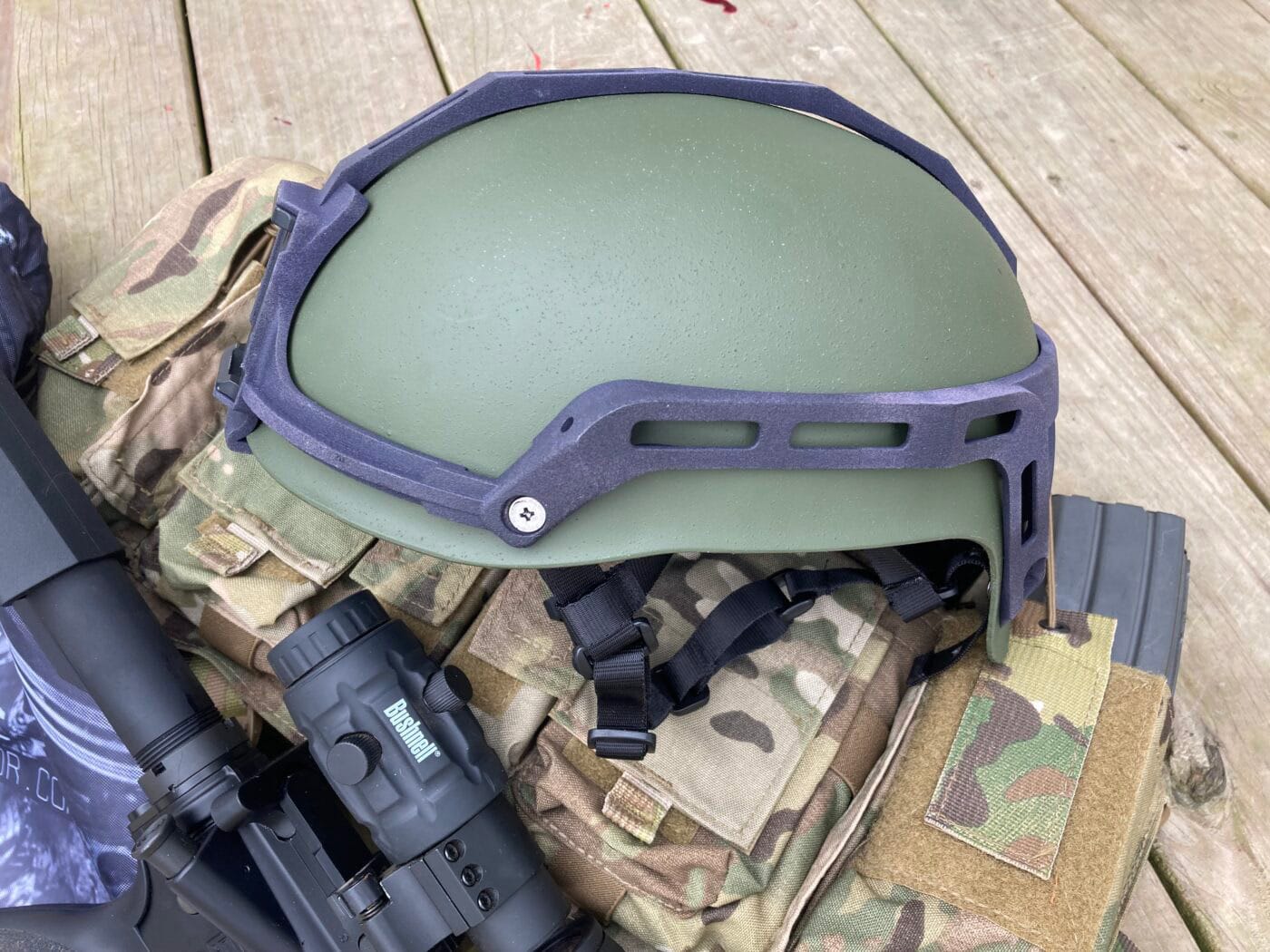
The Adept NovaSteel helmet was initially designed for the European police market. The goal was to use the most modern steel alloys to match the ballistic performance of fiber composite ACH-style helmets, yet offer longer service life, more resistance to environmental conditions, toughness for daily use — and all at a lower price point. And it was to accomplish this while maintaining good weight characteristics and the ability to accessorize similar to fiber composite ACH-style helmets.
The Adept NovaSteel helmet (L/XL) weighs in at 2.85 lbs., including a head retention system. This compares favorably to most composite helmets. For comparison’s sake, the current issue DOD Enhanced Combat Helmet weighs 3.3 lbs. The NovaSteel is VPAM 3 rated. The VPAM armor scale is European and reflects the initial market for the NovaSteel helmet.
The VPAM 3 rating signifies the ability to absorb three 9mm 124-gr. FMJ rounds fired at 1,361 fps from 5 meters away with strikes all spaced within a 4.7″ area. Adept Armor points out that the NovaSteel can also handle 7.62x25mm Tokarev rounds at 1,650 feet per second as well as 5.7x28mm ball rounds at over 2,000 feet per second.
Back face deformation of less than 1″ is also a VPAM 3 requirement. Lack of back face deformation and blunt force trauma resistance is where the steel NovaSteel really compares well with composite helmets. Back face deformation is minimal due to steel alloy construction, thus lowering concern of traumatic brain injury.
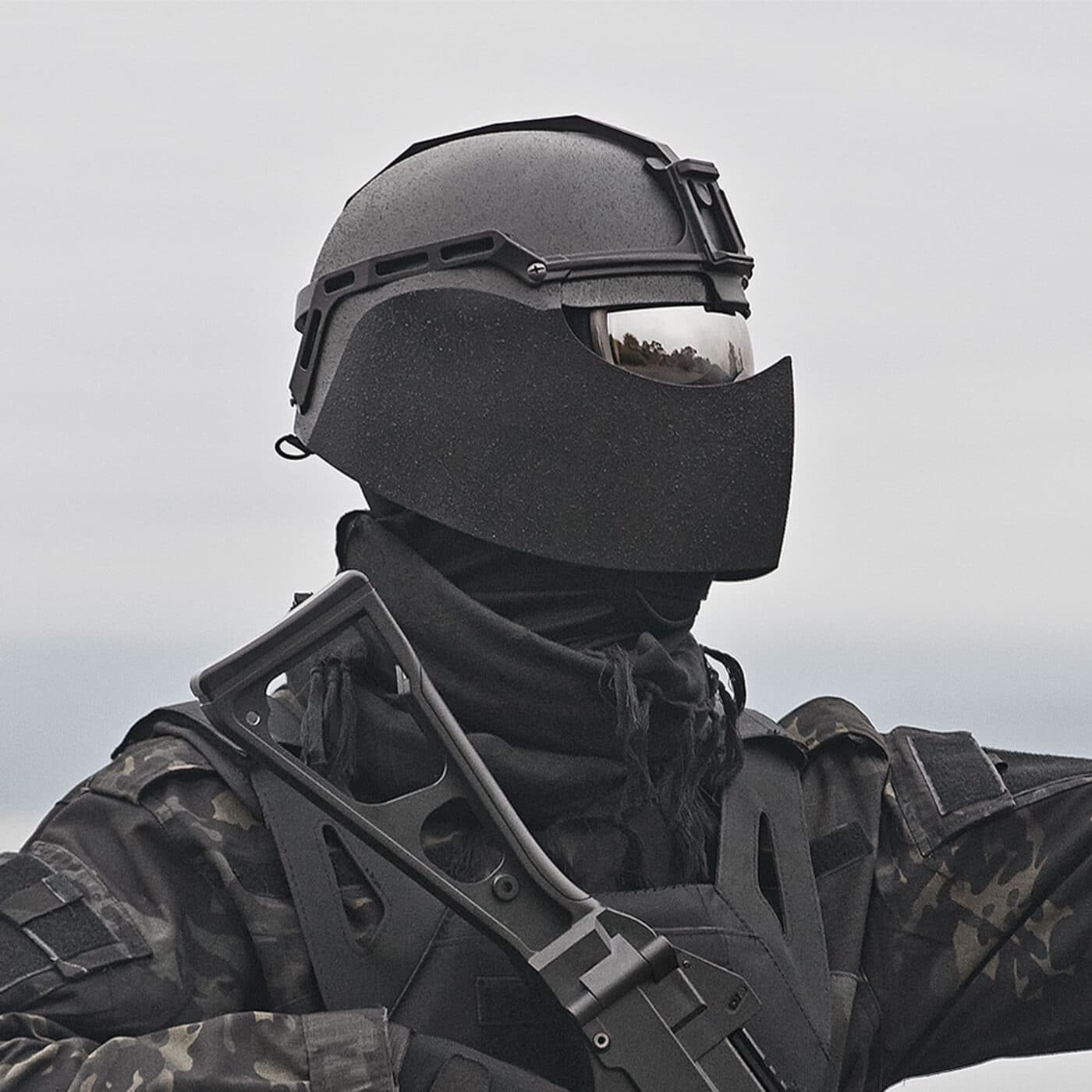
A further benefit of the stiff steel alloy is spreading the kinetic energy of a projectile across the entire helmet and padding system. This same principle is how the NovaSteel helmet deals so well with blunt force trauma. The NovaSteel helmet exceeds ACH blunt impact performance standards by nearly 50% per testing at NTS-Chesapeake in accordance with testing procedure of AR/PD 10-02 Rev A Change 7. The NovaSteel helmet produced an average headform acceleration of 78.5Gs versus maximum allowed acceleration of 150Gs.
Solid Foundation
Headgear now serves a multipurpose role beyond strictly protection; attaching night vision, communication, and other types of gear is supported via modern helmet systems. The Adept Combat Circlet accommodates all these needs, including sections of M-Lok side rails for customization depending on mission needs. The Combat Circlet is created from glass-filled polymer and weighs just 2 oz.
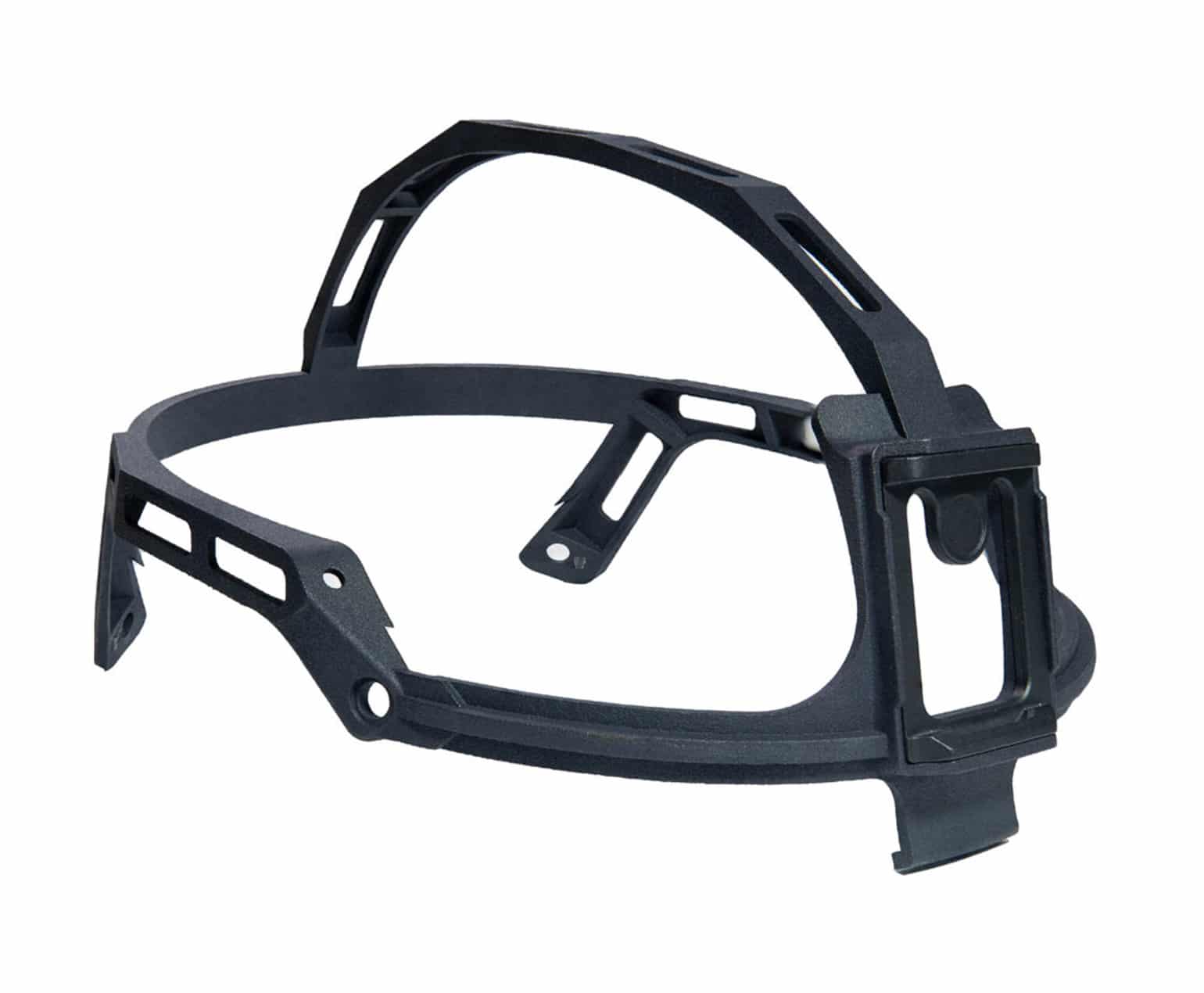
Also, Adept Armor offers an optional “Ballistic Mandible” faceplate that can attach directly to the helmet and not take up any space of the Combat Circlet. The Ballistic Mandible provides additional ballistic and blunt force impact protection to the user.
Regarding the helmet itself, Adept Armor uses a combination of pads affixed directly to steel alloy shell with a four-point chinstrap/nape strap head retention system attached to the steel alloy shell. Anyone who has operated with a helmet understands the importance of a snug comfortable fit to avoid helmet slipping around on your head. This is distracting at best and at worst impacts performance. An ill-fitting helmet also causes excessive neck fatigue.
Adept urges a user to take the time to properly fit their NovaSteel via provided instructions. The Adept retention system offers both adjustability and stability with hardy adjustable buckles/binding avoiding more complex parts. Frankly, I would have preferred a ratchet system based on previous experiences.
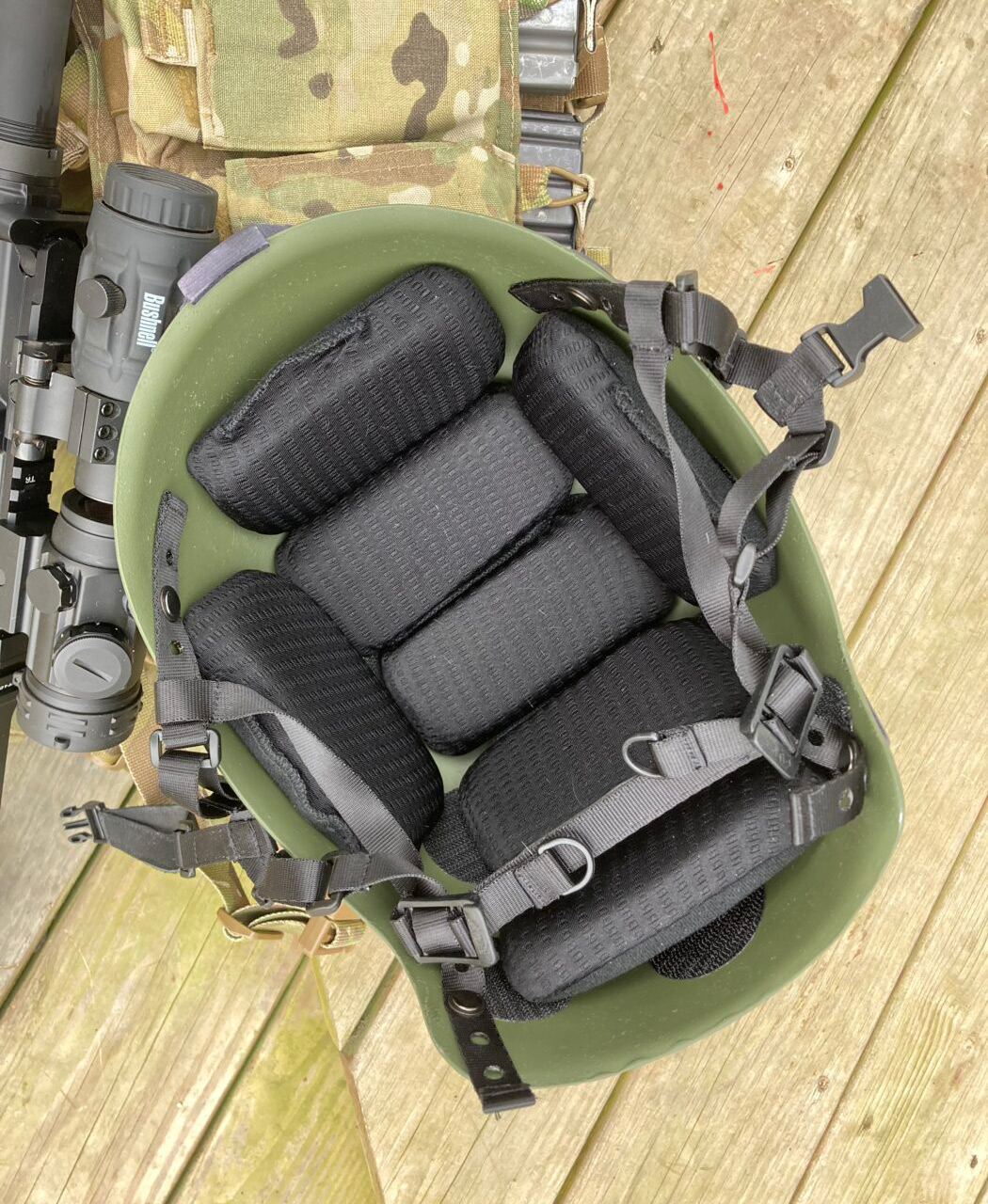
Two other advantages of the steel alloy NovaSteel must be brought up — edge to edge protection and environmental stability. Composite helmets offer little protection around their rims or near attachment point holes. An example of this would be an unnamed well-known composite helmet with 136 square inches of coverage yet only 90 square inches of ballistic protected area. Specifications written for composite helmets acknowledge this with terminology of “fair hits” included in the literature. Combat has nothing to do with fair. Steel alloy NovaSteel features edge-to-edge protection.
Composite helmets are susceptible to environmental degradation. The NovaSteel Helmet is not impacted by cold, chemical/solvent exposure, UV radiation and structural loading. It is also heat resistant. Adept has performed tests were the NovaSteel helmet has been conditioned at 212 degrees Fahrenheit (100 Celsius) for 12 hours and then engaged with 9mm FMJ rounds at 1400 fps. The result was no penetration and back face deformation witnessed was no different than a NovaSteel helmet not so abused.
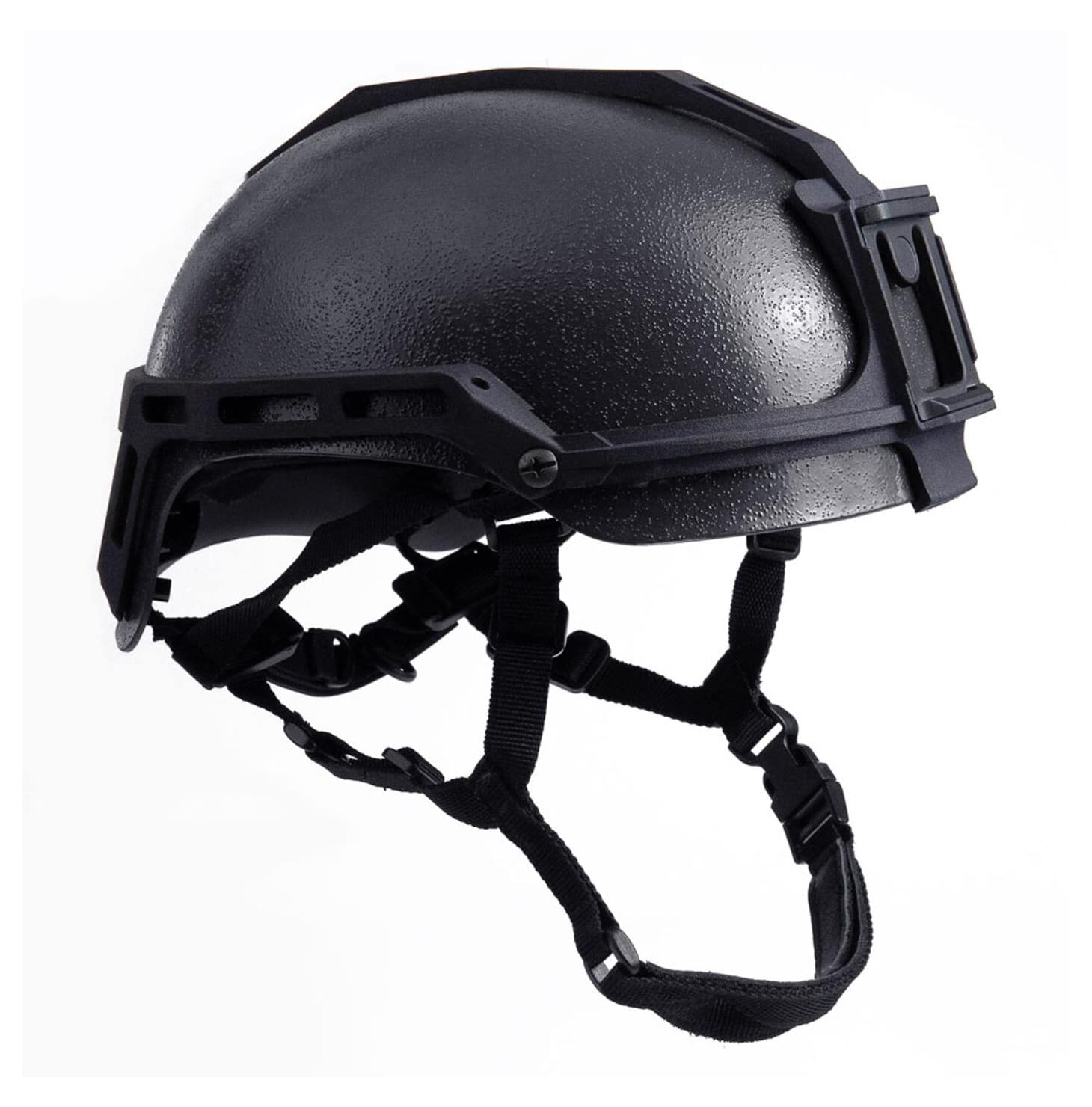
What am I getting at? Imagine gear including a composite ACH stored in a trunk or other conditions commonly encountered during active duty. This could be a problem. Heck, even dropping your composite ACH could be problematic in terms of its structural integrity.
Adept is using the NovaSteel helmet as the foundation for other helmet-mounted modular components such as steel alloy Ballistic Mandible mentioned earlier. The goal of the Adept NovaSteel helmet and modular components is to provide a fully integrated system that delivers excellent protection from blunt force, blast and ballistic threats, all with wearability and comfort. Comfort eases the chore of maintaining self-discipline in wearing gear.
My T&E of the helmet consisted of running various handgun and rifle drills while wearing the Adept NovaSteel helmet. The decision to choose a “high cut” style NovaSteel helmet allowed for full-size ear protection muffs as well as having no impact on cheekweld when shouldering a rifle. Use with mandible installed would be more problematic.
Conclusion
Individual operators, departments and units using the Adept NovaSteel helmet will have the final say in how well it is received and if it will see widespread use. A starting price of $245 for the NovaSteel helmet and $147 for Combat Circlet accessory should have some sway. It did with me.
Editor’s Note: Please be sure to check out The Armory Life Forum, where you can comment about our daily articles, as well as just talk guns and gear. Click the “Go To Forum Thread” link below to jump in!
Join the Discussion
Featured in this article
Continue Reading
Did you enjoy this article?

 178
178




